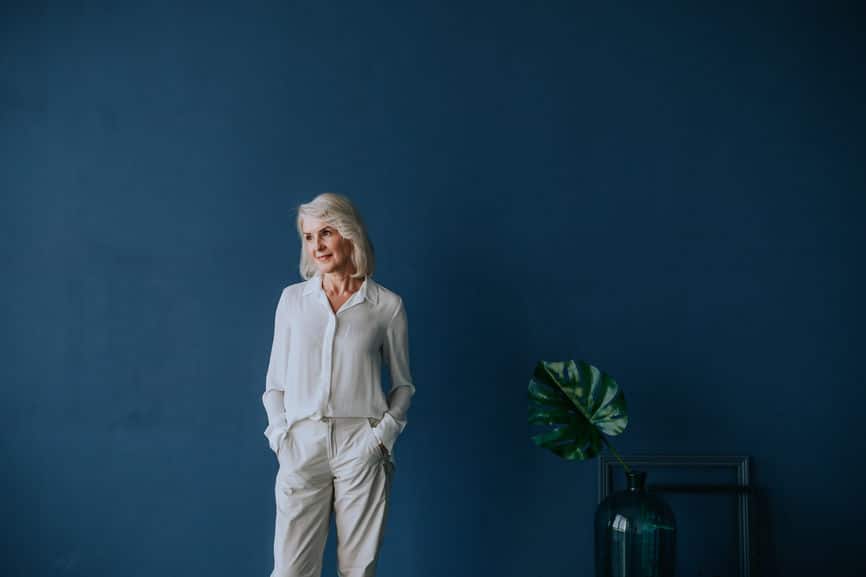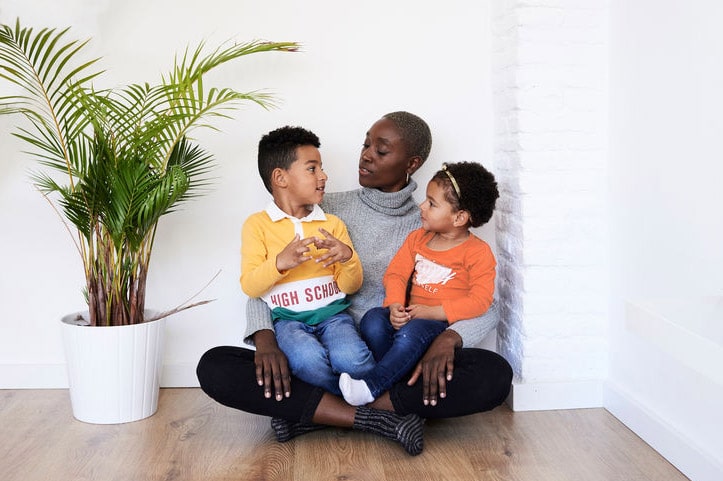
You might have heard of, or even used, a doula — a person who helps guide and support a new mother during childbirth. The role a doula plays can be somewhat nebulous. The person isn’t quite a midwife, isn’t quite a nurse, isn’t quite a physical therapist, isn’t quite a personal assistant. But a doula can help with tasks you might associate with any or all of the above, from assisting with paperwork to choosing appropriate music for the event.
An end-of-life doula plays a similar role, as the name suggests, at the end of someone’s life rather than the beginning. Statistics about how often end-of-life doulas are used are tough to come by—there is no legal definition or governing body—but, anecdotally, it seems safe to say they’re becoming more popular. As people take more control over the experience of dying, end-of-life doulas (also called death doulas) are increasingly a part of that.
We spoke with two end-of-life doulas to learn more about their practice and to find out why more people are including them in their end-of-life planning. Their answers are below.
Up first is iele paloumpis, who is based in Brooklyn, has been an end-of-life doula for about five years.
What is an end-of-life doula?

iele paloumpis
iele: At this moment, there’s a wide range of end-of-life services that end-of-life doulas choose to offer. There’s not a quote-unquote profession where there is a standardized practice or field of study, but it’s known what are the reputable programs or people to study under. But it’s not a nationally standardized thing.
What that means to me is that it can range from, in general, offering emotional support, which is among the most important practices—really having solid training around bereavement and grief in particular. In addition to that, things that I have included in my practice include just practical considerations, like what are the practical gaps that are not being fulfilled by medical care providers or social workers or loved ones. At the end of life, there’s an endless number of needs that any one person or a team of people can’t really fulfill.
That makes sense.
For me with a client, it’s based on the gaps in their care. And being responsible in that while I’m not medically trained, I can help them get resources.
Sure. What else?
There’s advocacy groups, and the advocacy work that I have done, especially when speaking to insurance companies. Unfortunately with our very broken health care system, it takes a lot of energy and exhaustion to navigate. Hopefully I can help mitigate some of that stress, so [my clients] can spend their time in better, more meaningful ways.
That’s great.
I also have a background in somatics, body-based knowledge. And I have a dance background, including body work, so I can help relieve anxiety through meditation practices. I’m also an herbalist, so if it feels like herbalism is of interest to a client, to help ease things like grief or anxiety or even physical pain, I can do that in relationship with their health care plan or their doctors.
It strikes me that, in this life anyway, we only experience death once. But you, as a doula, witness others’ experiences, and are then able to learn from those experiences and use them to help others.
We are people who are supporting people going through a process, who have maybe helped support their [dying] family members or loved ones as caregivers, not necessarily as doulas. But what I emphasize to a client is that, even as a doula who has gone through this before, the only expert on the end of life process is the person who is going through it themselves. A lot of it is coming to the work with a sense of humility.
How did you become an end-of-life doula?
I am a person who experienced a significant amount of grief through the loss of loved ones in my life so far. The losses I’ve had have been traumatic losses, through suicide or violence of some kind, homicide. So this has been my experience as someone who identifies as LGBT, which is a community that is often targeted by violence and has a high rate of suicide. Also a cousin I was close to died violently through homicide.
It became important to have a network of friends who have also gone through a significant level of loss or grief or trauma process and sit with each other and share our lived experience and offer that comfort to one another. I was often in a role of supporting people through their grief experiences. That opened up my interest in terms of how grief ultimately is a lifelong process in terms of moving through it and understanding it and healing it. And that opened my interests, offering support whether therapeutic or somatic.
That’s really wonderful. How did you hear about it?
I have friends who are birth doulas. This was many years ago now, but we were at a party where they were gathered, and one of them had just heard of end-of-life doulas. And she asked if any of us had heard of it. None of us had. And for me, the informal work I had been doing in my community, I felt pulled forth and called to do this.
For someone interested in end-of-life doula services, what are the first steps they should take?
There’s a growing network. You can do internet searches and Google and all that. There is a resource called the End of Life Practitioners Collective, and it’s a place where people can go. They’re all over the United States, Canada and the world, and doulas are part of that, along with other end-of-life resources. It has the contact info and biographies of practitioners, so you can find someone in your area.
There are also some hospices and palliative care units that have volunteer end-of-life doulas, so even if you weren’t able to hire an end-of-life doula, there are more organizations that offer their services through hospice.
Is that becoming more common?
Yes. I think about my role as being adjunct to hospice care. Some people are more into working with an end-of-life doula than they are with hospice, which, for whatever reason, has gotten a bad rap. There’s a lot of misinformation around it, and fear about entering into it. As a doula, we have to do death education work. Statistics say that people tend to live longer if they enter hospices. Hospice care and palliative care is effectively symptom relief, and attending to a complex range of symptoms. If your body is under less stress and duress, you can access rest more frequently, and it extends your life because your body isn’t under as much stress. That’s a generalized statement, of course, and there are a lot of considerations in that decision.
And it doesn’t create conflict?
We’re perfectly suited to help each other’s work. It’s not a competitive thing. There’s just so many needs that we can work on together. I think of my role not only as supporting the person who is dying and their family, but also in my experience, if a person is working with a doula and a hospice, we can make the nurses’ jobs easier. If they first call us when they think it’s an emergency, there might be something we can do, and maybe it’s not actually an emergency and we can provide care. But if it accelerates to a point where it is emergent, we can alert the nurses.
This field is gaining popularity, but in some ways it’s very ancient. Why do you think it’s seeing a resurgence?
To be honest, I think it’s our deeply broken health care system. Even people who have resources in terms of insurance and money, there are systemic things where people are dissatisfied with the level of care they’re able to get. Dissatisfaction in both directions—the doctors and nurses are overworked and tired. Everybody’s locked in a place that nobody likes. And people are quite desperate for other options to fill in the needs, which are massive, to be honest. People feel rushed while they’re grieving, but doctors and nurses don’t have the time to do the work.
Who needs life insurance?
Life insurance is a smart move when you have people in your life who depend on you financially.
Read moreWe also spoke with Emily Cross, who is based in Austin, Texas, and founded Steady Waves End-of-Life Services in 2017.
How do you define an end-of-life doula?

Emily Cross
Emily: An end-of-life doula to me, in terms of the role, is similar to a birth doula in that we’re supporting the person who is going through this transition. A birth doula transitions a woman into a mother and this new person into existence. Dying, depends on how you look at it, a lot of people see it as a transition from being alive to being not alive.
Right.
I see my position as serving a person who is dying. That can look a lot of different ways. Each doula approaches things differently and sets different boundaries.
What about for you?
I hold space for them and give them what they need. Whether it’s practical, like paperwork or making sure they have everything they need for peace. Or being bedside, and controlling the pace of people going in and out. Helping plan a funeral. Tasks vary for each client. But, essentially, I see this as support and as a person of service for someone who is dying.
How did you become one?
I heard about it on NPR. I don’t even know who was being interviewed. I heard it was a non-medical role to help people with end of life. I just knew that it was something I wanted to pursue. After doing some research, I enrolled in a training program.
I am a musician and an artist. I am primarily these days a musician. I go on tour and make records and stuff like that. I was looking for a career that would stay with me alongside these creative endeavors, as they’re not exactly lucrative. I didn’t want to be working at coffee shops until the end of time. I’ve always been interested in death—not in a negative way, just in a curious-mind way. And when I heard that it could be a non-medical position, that’s when I knew that I could do it. If there was any way I could be more of a compassionate support system for the dying, that’s what I was interested in. I was interested in hospice and making music for people at the end of life.
How can someone find a doula who’s a good match?
Right now, it’s a little unclear as to how people go about seeking out end of life doulas because the proper education isn’t out there. People are confused because they don’t understand the role we’re playing within hospice and within the health care system. That’s one of my main goals in doing this work—the education piece in my community. Making people realize how we can be utilized within the system. RNs, chaplins, etc.—we can bridge those gaps and make sure there’s a continuity of care going on. There’s a lot of disjointed things that can happen with paperwork, for example.
Absolutely. So how do you communicate your wishes to your potential doula?
The first step would be telling someone that they want that. Or searching themselves. Hopefully one day, [more] hospices will integrate death doulas in their team and hospitals, too.
It’s important to find the right doula that fits with you. And most doulas offer, I think, a complimentary meeting or phone call to feel that out. It’s extremely important that you’re comfortable—it’s a vulnerable time in your life. Physically meeting, if possible, before hiring them, is great. And then making sure you have a contract that says you are allowed, for any reason at any point, to dismiss the doula. And obviously there’s money involved, so there would have to be some kind of talk about that. The doula should care about that and understand if it’s not jelling right. Personally, I would want to have a consultation in a limited time frame. And then in the contract be clear about the situations of employment.
There’s also a lot that you can tell from people’s websites and talking over the phone. Some doulas have specialities—for instance, mine is art and music. You can prescreen and see what people are into prior to contacting them.
What are some of the challenges you and fellow doulas face?
I think just getting our message out there is a big challenge. Although it’s getting a lot easier. A lot of interest has been kicking up lately within the past year. It’s pretty exciting. There’s a whole new conversation going on around death. People are realizing they can have more beautiful and meaningful deaths.
Why do you think that conversation is happening right now?
I don’t know. I think maybe this new generation, their parents are starting to die, and we’re seeing more opportunity to do things differently and challenge the way things have been for a while. The green funeral movement, with climate change, we’ve been challenging the decisions we make in all areas of our lives, and death is no different. Making dying more environmentally friendly and in line with our beliefs.
Also maybe a bit is coming from people wanting to have alternative ways of working and jobs and stuff like that. I’m not sure that it has one answer or source.
For sure.
There’s also a resurgence in looking to the past—the quality of how things are done, and how things are made. There was this whole point in time where things were being made well and to last forever. And then it changed to volume over quality. Now it’s getting back to something that’s hand-crafted and will last a really long time. A hundred years ago, we were caring for our own family members and loved ones and really giving them the attention and love and ceremony ourselves. And maybe it’s connected in that way, too. We want to be more connected to doing things more intentionally and naturally.
I know it’s on your website, but it seems important to mention here: How are EOL doulas different than hospice?
The main part is that doulas are not instead of hospice, they’re in addition to hospice. I really recommend strongly that people go for hospice if they’re eligible or qualify. It’s a wonderful tool that helps people live longer and more comfortably at the end of life. The main difference is that hospice offers palliative care, which a doula does not do (unless they’re an RN, as some are). A doula is really a continuous presence, whereas hospice sends out workers who are only there for certain periods of time. And they’re a business, with rules and regulations and things like that, whereas doulas are more free in their time and in their services because they’re not a licensed body. They’re just a person who has experience.
Louis Wilson is a freelance writer whose work has appeared in a wide array of publications, both online and in print. He often writes about travel, sports, popular culture, men’s fashion and grooming, and more. He lives in Austin, Texas, where he has developed an unbridled passion for breakfast tacos, with his wife and two children. This article is sponsored by Haven Life Insurance Agency. Opinions are his own.
Haven Life Insurance Agency offers this as educational information only, not as an endorsement.
The post What is a death doula, and who should consider one? appeared first on Blog | Haven Life | Life insurance & Personal Finance Tips.
from Blog | Haven Life | Life insurance & Personal Finance Tips https://ift.tt/2Gv1JJV

ConversionConversion EmoticonEmoticon